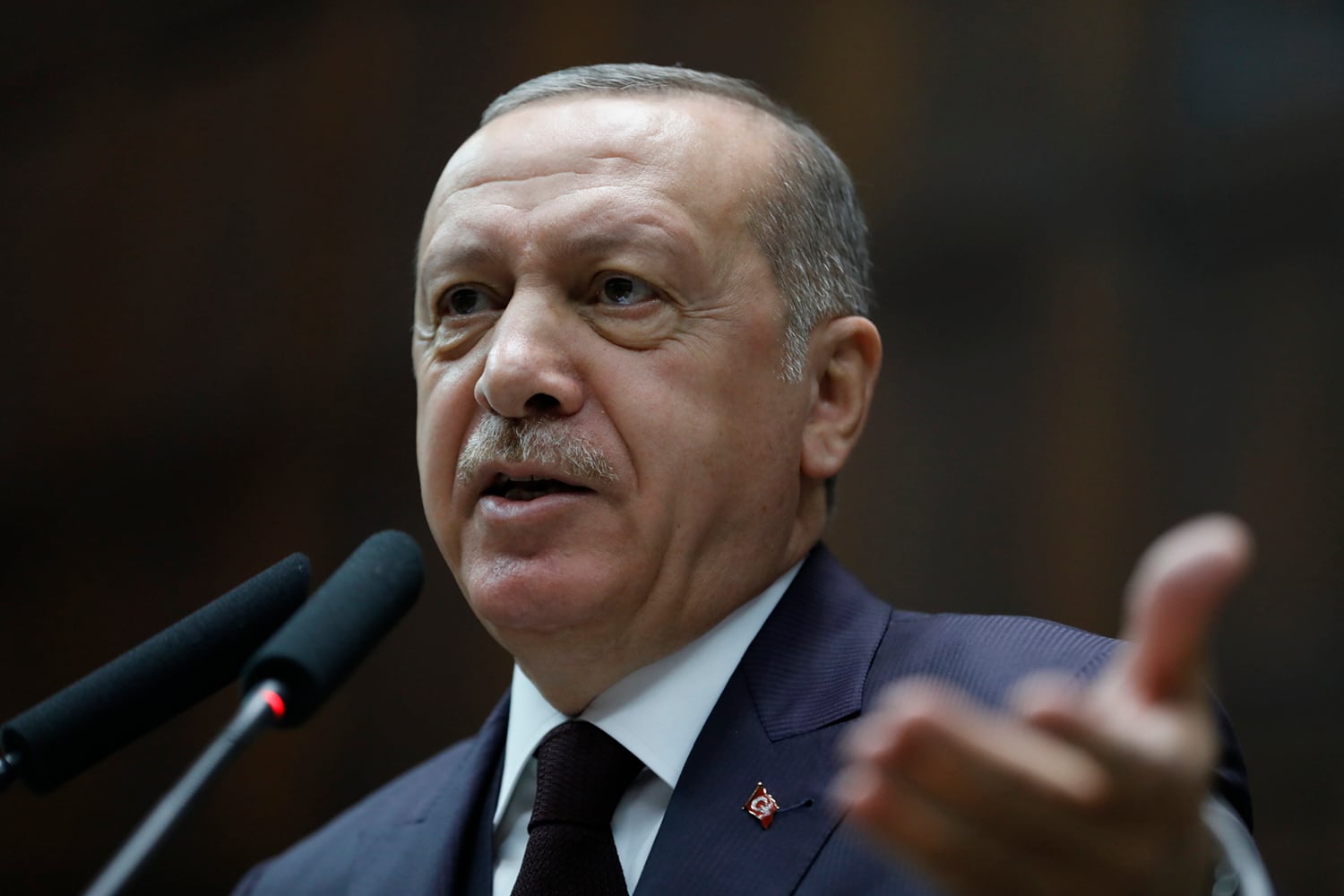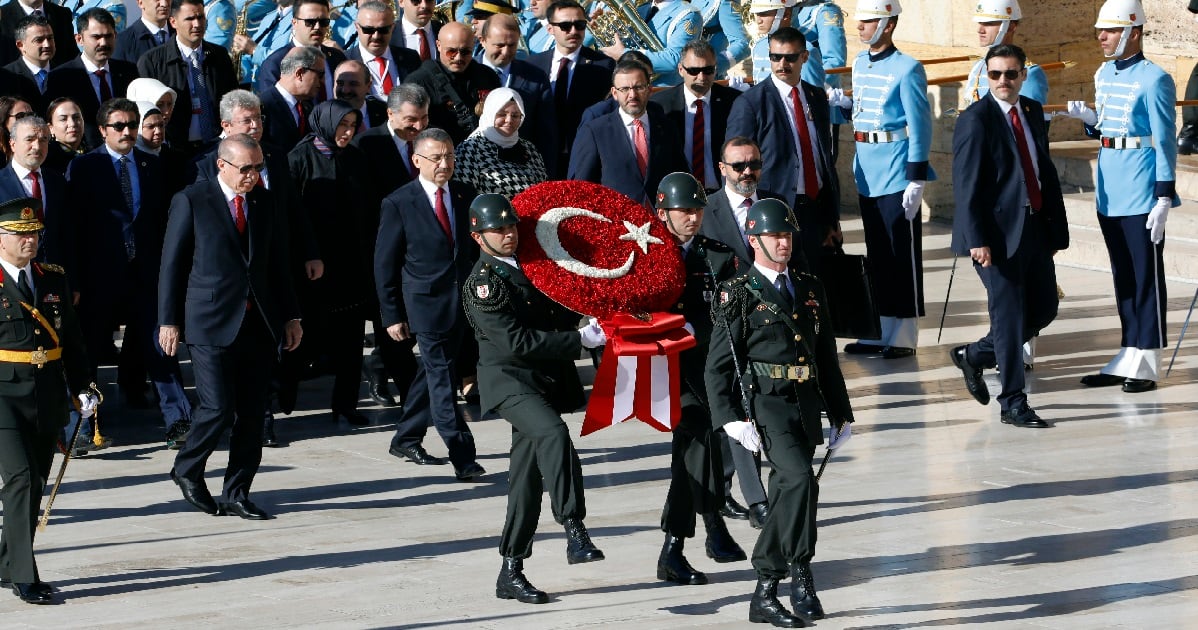ANKARA, Turkey — Turkish President Recep Tayyip Erdogan said Tuesday that joint patrols by U.S. forces and a Kurdish-led militia in northern Syria are “unacceptable.”
The U.S.-led coalition against the Islamic State group and the Kurdish-led Syrian Democratic Forces conducted two joint patrols last week after Turkish artillery shelled Kurdish positions in northeastern Syria.
Turkey considers the Kurdish militia that forms the backbone of the SDF an extension of the Kurdish insurgency within Turkey. U.S. support for the Kurdish-led forces, who retook large areas from ISIS, has raised tensions between the two NATO allies.

"Not only can we not accept (the joint patrols), such a development will cause serious problems at the border," Erdogan told reporters at parliament.
Meanwhile, a bomb went off inside a car in the northern Syrian town of Manbij, killing one person, according to the Britain-based Syrian Observatory for Human Rights and the Manbij Military Council, which administers the town.
RELATED

The SDF drove ISIS out of Manbij in 2016. In June, the U.S. and Turkey agreed on a roadmap in which Kurdish fighters were to withdraw from the town. The Kurdish YPG militia says it withdrew in July, but Turkish officials say the group, which they view as a terrorist organization, is still present in Manbij.
Last Thursday, Turkish and U.S. troops began jointly patrolling areas around the town.





